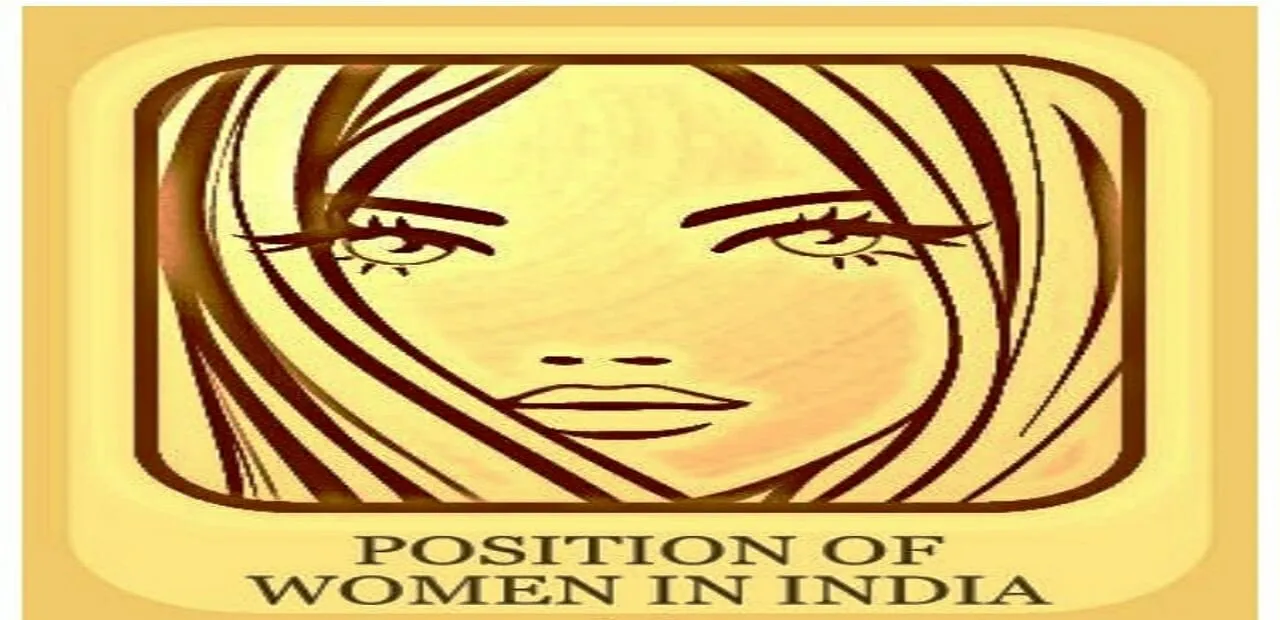
Women have held different positions at different times in India. She was regarded as mentally inferior to man. Manu was of the view that the females should not enjoy any freedom in any walk of life. They should ever remain under the strict control of their father during girlhood; of their husband during their married life and of their Sons during widowhood.
The women could freely participate in the religious and public life during the Vedic Period. The couple jointly performed the sacrifices. A son’s birth always gave greater joy than the daughter’s birth. The brother less married girls enjoyed the right of inheritance. The women could attend the social gatherings and freely meet (mix) and converse with strangers. The bride was most heartily welcomed. She reigned supreme over the household. They could chant the Vedic Mantras. A widow could remarry her own brother-in-law at her sweet will. She stood high in the estimation of the public. Even if she overstepped moral laws she was judged mildly and with sympathy. She was her husband’s helpmate in all the domestic affairs. The society was tolerant. Even the sons of a maiden were accepted by the society. The son was known as the boat of salvation but all the performances remained incomplete without the woman’s participation. Later on, she lost place in the religious sphere. The daughter’s birth was despised. Social laws and customs stamped her with a sort of mental deficiency. The luck-’ less girl was treated as an intruder and was killed in certain tribes even in infancy. She was strictly confined to home and domestic cares. She was not to be relied upon in matters of serious concern. She had no free hand in expenditure. Even the pious Sita was banished by her lord (Rama). Women enjoyed a good deal of freed om in the Gupta Period. They could study philosophy. There was no purdah. Sati custom was not in vogue. The widows could not remarry. Their hair were removed as a mark of widowshood.
The Rajput women deserve the greatest praise and pity. Death was ever ready t claim the luckless Rajput women. Whenever their honour was at stake, they performed jauliar and got themselves consumed in the burning fire. The female education was neglected during the Muslim period. The Hindu women had to serve on hire in Muslim houses.
The women folk generally remained in subjection and sufferings. Cases of suicide or elopement were the results of their neglect and oppression. They were maltreated and kept as captives. The women folk did not feel at home in their husband’s homes. Her say had no value in the management of the household. She worked disinterestedly.
Her position has become sound in the modern age. Now, she is not the kitchen. maid but the mistress of the household. She enjoys the right of education, enfranchisement and speech. She can speak, even with a stranger. She can address huge gatherings. She can fight elections. She is no longer .a victim. She can walk and talk freely. A woman without a veil is not criticized. She has – become the man’s associate and equal, She has a say and influence in her house. She has proved to be a sound adviser. She is not a sheer instrument of animal pleasure. She is regarded as the Lakshmi of the house. A boy and a girl are treated at par in the society. They can dress alike. The women folk are not dependent upon their husbands for their upkeep. They get jobs and supplement the earnings of their husbands. An earning woman enjoys more respect at home and in the society than a non-earning woman. The women’s needs and moods are not neglected. They can see pictures; attend marriage parties and the funeral procession. All the restrictions have been removed. The evil customs of ‘Sati’ and ‘Dowry’ have been removed. A widow’s shadow is no longer despised. She can remarry rather than starve and suffer throughout the rest of her life. The women-folk are the vein and the bone (spine) of the society. All the transactions
Are made with her will.
They can seek the best of education and training. They can compete with men.
‘They enjoy the right of inheritance. She treats her husband’s home as her own and tries her level best to co-operate with the males in every possible way. She is sane and sound in mind. More gold can be mined from the women’s mind than from the mines of the earth.
The Government has set up many Commissions and Committees for the women’s welfare. The Commissions formulate guidelines on actions to improve their
– status in the economic, social, political, cultural and educational fields. The Committees ensure that discrimination against women is eliminated. Some projects are being launched whereby they can generate some income on small- scale. Insurance schemes, saving schemes and loan schemes are also implemented for them. The government of Maharashtra has lately decided to reserve 30% of the posts in various departments for women. Many laws and statutes have been passed to protect the human rights guaranteed to them. The General Social Welfare Board and the State Welfare Boards are other departments are also vigilant for their uplift. The ‘Prime Minister Rozgar Yojna’ will also prove beneficial for them.